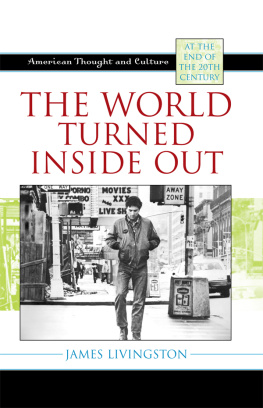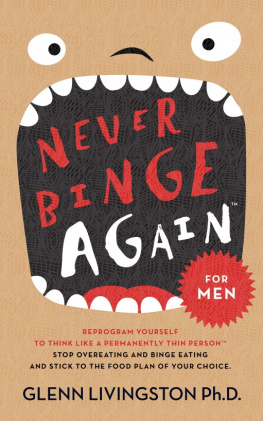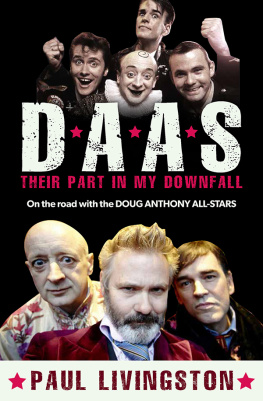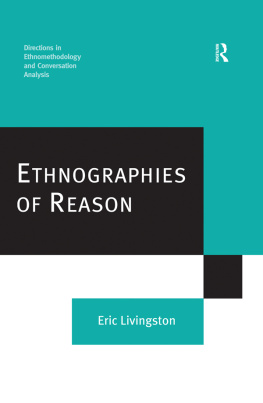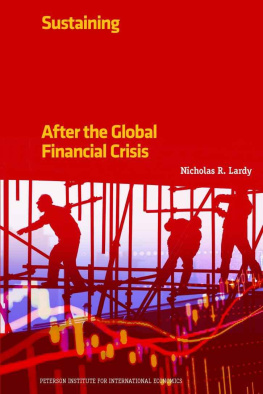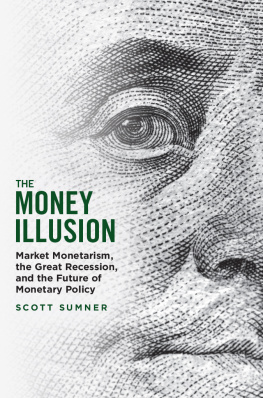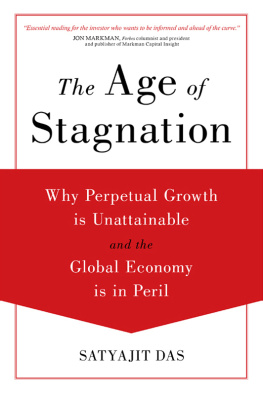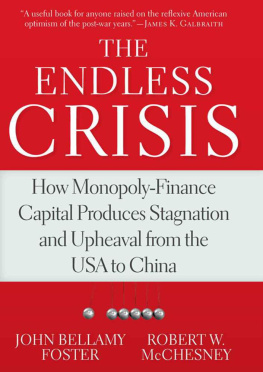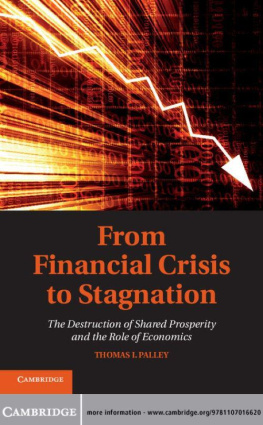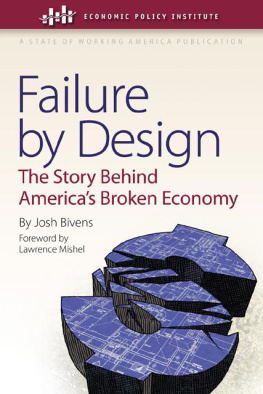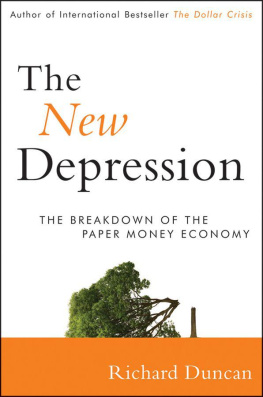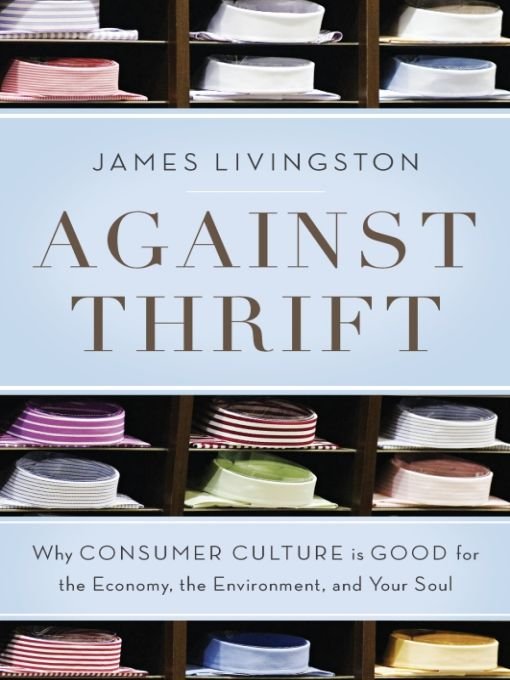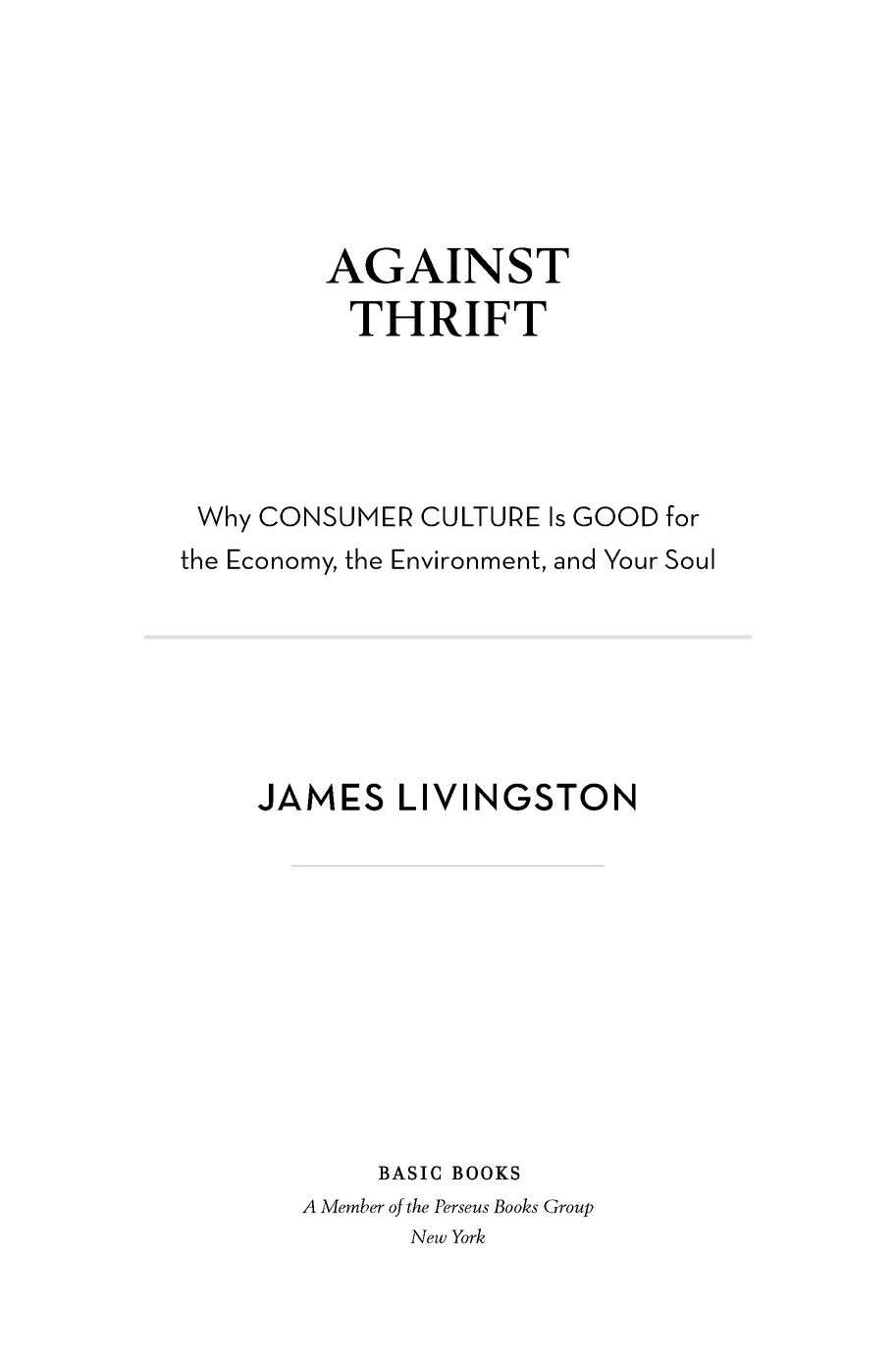Table of Contents
ALSO BY JAMES LIVINGSTON
The World Turned Inside Out: American Thought and Culture at the End of the 20th Century
Origins of the Federal Reserve System: Money, Class, and Corporate Capitalism, 18901913
Pragmatism and the Political Economy of Cultural Revolution, 18501940
Pragmatism, Feminism and Democracy: Rethinking the Politics of American History
For E. S. and L. K.
Introduction: Waiting for Galileo
THE DOWNSIDE OF THRIFT
Were the most affluent people on the planet, us Americansour choices among foods, ideas, clothes, schools, and destinations are almost without limitand we love to shop. But we also know that consumer culture is bad for us. How come?
In a word: excess. Were afraid that we consume too many resources, that we save too little of our incomes, and that meanwhile we produce almost nothing of real value. Were afraid that we cant observe any limits on our consumption of goods, so that every substance, even food, begins to feel addictive, and every urge, even sex, begins to feel compulsive. When armed with credit cards, it seems, were unwilling to defer the immediate gratification of our desires, and were thus unable to save for a rainy day. Were also afraid that were mere cattleherded by corporations and branded by their admen. Were especially afraid that consumer culture is making us fat.
So, yes, we love to shop, most avidly between Thanksgiving and Christmas. Still, we know that in the long run, consumer culture is bad for the economy, the environment, and our souls. We sometimes express this split in our personalities by complaining about the commercialization of Christmas, typically when were fighting crowds of last-minute shoppers. More often we apologize to ourselves, among others, for buying things we didnt really need, or for indulging a childs ad-induced desire for a molded plastic toy that will never decompose. Complaining or apologizing, were divided by very different orders of feeling. On the one hand, we experience the pleasure of buying, using, and giving away the things on the shopping list. On the other, we know without thinking that the same things already contain a barbaric history of exploitationMade in China, the label saysand foretell an ugly future of mountainous landfills.
In this book, I make the case for consumer culture: why its actually good for the economy, the environment, and our souls, among other things. In this sense, Im trying to heal the split in our personalities by demonstrating that less work, less thrift, more leisure, and more spending are the cures for what ails us.
So I make two basic arguments: one about the economy and the other about the culture, using a strategy that keeps me coming back to the historical record.
First, sustainable economic growth doesnt require more saving by households and more investment by CEOs, bankers, traders, and fund managers. In other words, more consumption is the key to balanced growth in the future. Thats right: we need to save less and spend more. Just to begin with, a much larger dose of consumer spending is absolutely necessary to prevent the kind of economic catastrophe that still racks the domestic and international economies. That new dosage requires a redistribution of national income away from profits, which dont always get invested, toward wages, which almost always get spent. This new course of treatment does more than invert the supply-side cure for our economic ailmentscut taxes on profits, let private enterprise prevail!because it assumes, in view of the historical record, that profits wont be productively invested. Thats right: higher profits almost never lead to more investment, more jobs, and more growth. In fact, theres no demonstrable link between private investment and economic growth, so cutting taxes on corporate profits is pointless at best and destructive at worst. We might as well stop pretending that there is such a link.
Second, consuming goods is as morally complex and significant as producing goods. Making thingsthe work that requires tools and skills and timeis no more meaningful than buying and using things. In fact, work as such is less important than, say, buying and driving a car, or choosing and wearing that little black dress. (It turns out, in any event, that the kind of work we typically imagine as the obvious alternative to The Mall is what we do at our leisure, after hours: its already taken up residence in the neighborhood of consumer culture, where you dont get paid for what you produce.) As part of this polemic against workagainst alienated laborI demonstrate in Chapters 5 and 6 that consumer culture doesnt siphon political energies and fragment social movements by privatizing experience: instead it grounds a new politics by animating both new solidarities and new individualities. In the same spirit, I show in Chapters 7 and 8 that advertisingthe headquarters of consumer culturespeaks the last utopian idiom of our time because it urges us to create identities unbound by work.
The order of this argument is determined by a simple assumption: I cant explain the downside of thriftor the morality of spendingunless I first convince you that the Great Depression and the recent economic crisis are comparable events, both of them caused by an excess of profits and a shortage of wages, or too much saving and not enough spending. Thats what Part 1 of the book is about. Its where I explain how the available explanations of the catastrophe are inadequateand why the story we tell about the origins of economic crisis will dictate the practical effects we call public policy (Chapters 1 and 2). Its also here, in Part 1, that I use the historical record to explain why cutting taxes on high-end incomes and corporate profits in the name of increased investment is worse than pointless. And finally, its where I explain why saving for a rainy day is just as destructive (Chapters 3 and 4). My case for the morality of spending in Part 2 doesnt make much sense in the absence of these explanations.
With or without Part 1, its a hard case to make because everyone knows how and why to defer gratification. All adultsnot just parentshave a powerful psychological urge to put their desires on hold, and that urge makes us receptive to the notion that wed better be saving more and spending less, just like all the mainstream economists and reputable journalists keep telling us to. We know what will happen to our bank accounts, our waistlines, and our marriage vows if we stop listening to their insistent voice of reason.
Even so, weve reached the point where we have to confront our fears about consumer culture, because the renunciation of desire, the deferral of gratification, saving for a rainy daycall it what you wanthas become dangerous to our health. To heal ourselves, we need to spend more freely, to live less anxiously, more easily and generously, with ourselves and with Nature. (I, for one, dont believe that theres much left of Naturemerely planting crops changes the chemical composition of the original soilbut Im willing to entertain the possibility in the name of an inhabitable environmental future, and, as youll see in Chapter 9, I think consumer culture is a promising path to environmental integrity.)
Let me put it more plainly, and way more polemically, in the terms first offered us by Sigmund Freud (soon Ill be citing Karl Marx and anybody else who can help me make this case). If Im right about the economics of the case, we could learn to live with a lot less repression of our instincts, drives, and desiresand this learning experience might produce a new human nature that is more at ease in the world. That would be a human nature moved by a double consciousness, as W. E. B. Du Bois put it, a human being informed by a constant awareness of the needs of others, whether animal, vegetable, or mineral. But I must admit that learning to live with a lot less repression could produce a human nature moved only by compulsive desire for the new experience, the next big thing, whatever it may be. This would be a human being that had replaced civilization and its discontents with hell on earth, where mastery of a video game means intellectual attainment.


